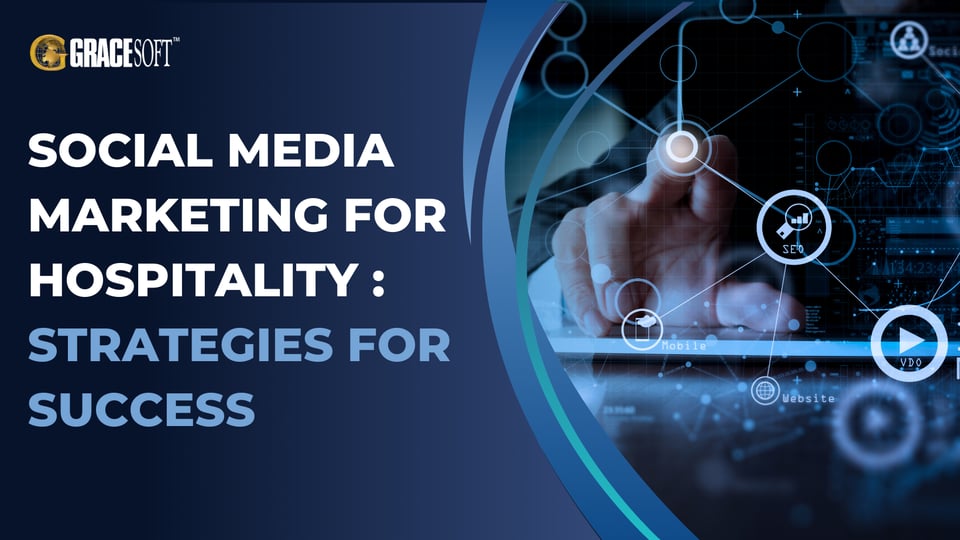Social Media Marketing for Hospitality: Strategies for Success

The hospitality industry has undergone a seismic shift with the advent of social media. Once a realm dominated by traditional marketing, it's now a digital landscape where connections are forged, experiences are shared, and brands are built. Social media has become an indispensable tool for hotels, restaurants, and other hospitality businesses to reach their target audience, build brand loyalty, and drive bookings.
Understanding the Importance of Social Media in Hospitality
Social media platforms like Facebook, Instagram, Twitter, LinkedIn, and TikTok offer hospitality businesses a direct line to current and potential customers. Here are some reasons why social media is crucial:
- Customer Engagement: Social media allows for real-time interaction with guests, addressing queries, gathering feedback, and creating a community around your brand.
- Brand Awareness: Consistent and strategic social media presence helps in building and maintaining brand awareness.
- Visual Appeal: The hospitality industry thrives on visuals. Platforms like Instagram and Pinterest are ideal for showcasing stunning property photos, enticing food imagery, and unique experiences.
- User-Generated Content: Encouraging guests to share their experiences creates authentic content and acts as powerful word-of-mouth marketing.
- Targeted Advertising: Social media platforms offer sophisticated targeting options to reach specific demographics, ensuring marketing efforts are efficient and effective

Key Strategies for Social Media Marketing in Hospitality
1. Craft a Compelling Brand Story
- Authenticity: Share the story behind your brand, highlighting its unique aspects and values.
- Consistent Messaging: Ensure all posts reflect your brand’s voice and image, creating a cohesive narrative.
- Emotional Connection: Use storytelling to create an emotional connection with your audience, showcasing the experiences and memories guests can create.
2. Leverage Visual Content
- High-Quality Photos and Videos: Invest in professional photography and videography to capture the essence of your offerings.
- Virtual Tours: Offer virtual tours of your property or experiences to give potential guests a taste of what they can expect.
- Behind-the-Scenes Content: Share behind-the-scenes glimpses to humanize your brand and build trust with your audience.
3. Engage with User-Generated Content
- Encourage Guests to Share: Create hashtags and encourage guests to share their experiences on social media.
- Feature Guest Content: Share user-generated content on your official pages, giving credit to the original posters.
- Run Contests and Campaigns: Organize photo contests or hashtag campaigns to increase engagement and collect valuable content.
4. Utilize Influencer Partnerships
- Identify Relevant Influencers: Partner with influencers who align with your brand and have a significant following in your target market.
- Collaborate on Content: Work with influencers to create authentic content that showcases your offerings.
- Monitor ROI: Track the performance of influencer campaigns to ensure they are delivering the desired results.
5. Engage in Real-Time Interaction
- Respond Promptly: Address comments, questions, and reviews promptly to show that you value customer feedback.
- Live Streaming: Use live streaming for events, Q&A sessions, or virtual tours to engage with your audience in real-time.
- Community Building: Create groups or communities on platforms like Facebook to foster direct interaction and loyalty.
6. Implement Targeted Advertising
- Audience Segmentation: Use social media’s targeting features to reach specific demographics, such as age, location, and interests.
- A/B Testing: Experiment with different ad creatives and messages to determine what resonates best with your audience.
- Retargeting: Use retargeting strategies to reach users who have previously interacted with your brand or visited your website.
7. Analyze and Adapt
- Track Performance: Use analytics tools to monitor the performance of your social media campaigns.
- Adjust Strategies: Be prepared to adjust your strategies based on data insights and changing trends.
- Stay Updated: Keep up with the latest social media trends and platform updates to ensure your strategies remain effective.
Platform-Specific Tips
- Instagram: Focus on visually appealing content, use relevant hashtags, and leverage Instagram Stories and Reels.
- Facebook: Build a community, share engaging content, and utilize Facebook Ads for targeted campaigns.
- Twitter: Provide quick updates, engage in conversations, and use Twitter for customer service.
- TikTok: Create short, entertaining videos that align with platform trends.
Conclusion
Social media marketing is an indispensable tool for the hospitality industry, offering unique opportunities to engage with customers, build brand loyalty, and drive business growth. By crafting a compelling brand story, leveraging visual content, engaging with user-generated content, partnering with influencers, interacting in real-time, implementing targeted advertising, and continuously analyzing performance, hospitality businesses can harness the full potential of social media to achieve their marketing goals.
You May Also Like
These Related Stories
How Social Media Can Help Increase Hotel Reservations | GraceSoft

Essential Building Blocks for your Online Booking System

.webp?width=128&height=64&name=gracesoft%20logo%20copy%20(7).webp)

No Comments Yet
Let us know what you think